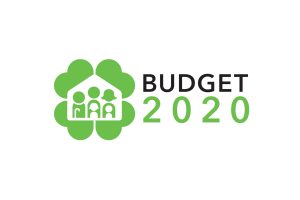Monetary Authority of Singapore urges customers to minimise visits to banks as financial institution services go online in the extended circuit breaker period
By: Hitesh Khan/
The Monetary Authority of Singapore (MAS) has urged customers of financial institutions (FIs) to minimise visits to their premises during the current circuit breaker period. This is in line with the guidance issued by the Ministry of Health (MOH) on 14 April 2020 to minimise people moving around.
Financial institution services go digital
Table of Contents
While financial services remain available as one of the essential services exempted from the suspension of activities at workplace premises announced by the Ministry of Trade and Industry (MTI) on 3 April 2020, customers are urged to use digital, email, and telephone channels as far as possible and minimise face-to-face interactions at FI premises.
About half of the bank branches in Singapore have closed, in view of reduced customer traffic. The branches that remain open are well distributed across the country and provide a range of services to meet customers’ needs. (See Annex for list of services.) However, customers are strongly advised to use online or phone banking channels to meet their banking needs, such as making payments and remittances, opening and closing accounts, and checking account balances. They need not visit the branches to apply for loan relief measures or renew fixed deposits. Customers are urged to use ATMs to withdraw cash or deposit cheques instead of going to bank branches to do so.
Most financial institution services move online
Most of the physical service locations of insurers, brokers and fund managers have closed, in view of reduced customer traffic arising from the elevated safe distancing measures announced by MOH on 3 April 2020. Customers who want to receive financial advice, purchase investment and insurance products, apply for premium relief measures and procure services related to insurance and broking (such as account opening and closure, dormant account activation, and change of passwords) should do so through channels such as the telephone hotlines, websites, and internet-based applications of these FIs.
Mr Paul Ho, chief mortgage officer at iCompareLoan, said, “as most financial institution services have moved online, we too have started meeting our clients remotely. In this extended Circuit Breaker period, people are still buying and selling properties, and they can get the best home loans only when they work with trusted mortgage brokers.
On 21 April 2020, the Multi-Ministry Taskforce announced that it would extend the circuit breaker period until 1 Jun 2020 (inclusive), and put in place enhanced circuit breaker measures minimally for a two-week period from 21 April 2020 until 4 May 2020 (inclusive). The Government will continue to support our people and sustain business stability through the extended circuit breaker period, building on the measures introduced in the Unity, Resilience, and Solidarity Budgets since 18 February 2020.

Supporting Workers and Considering Business Stability
Jobs Support Scheme wage subsidy remains at 75% for all sectors for May 2020
In the Solidarity Budget, the JSS was raised to provide 75% wage support on the first $4600 of gross monthly wages for local employees across all sectors for the month of April 2020. The Government will extend the 75% JSS across all sectors for another month, i.e. in the month of May 2020. This enhanced payout for May 2020 will be disbursed by end-May 2020 for employers on PayNow or having existing GIRO arrangements with IRAS. Other employers will start receiving their cheques in early-June. The Government said that it encourages all employers to sign up for PayNow to receive their payouts faster.
Similar to the arrangement for April, the 75% subsidy for May 2020 will first be computed and disbursed based on November 2019 wages, thereby ensuring speedy disbursement. Subsequently, the Government will adjust future JSS payouts to account for actual wages paid in May 2020, relative to November 2019.
As part of the Government’s efforts to save jobs and support wages with timely disbursement, the additional JSS subsidy (75% across all sectors in May) will be computed using November 2019 wages as a proxy. Actual subsidy will be determined later based on the wages paid in May 2020. This means that employers who do not pay wages in May 2020, or who place employees on mandatory no-pay leave in the month of May will not benefit from the 75% subsidy.
JSS payouts are intended to offset and protect local employees’ wages. Employers must act responsibly and fairly, taking reference from the tripartite advisory on salary and leave arrangements during the circuit breaker period. Employers who put local employees on mandatory no-pay-leave or retrench them will not be entitled to the enhanced JSS payout for those employees.
JSS to cover shareholder-directors
The Government will also extend the Jobs Support Scheme payout, to cover wages of employees of a company who are also shareholders and directors of the company (shareholder-directors). For companies limited by guarantee, this applies to employees who are both members and directors of the company and as defined in Section 4(1) of the Companies Act.
This support will only apply to companies that were registered on or before 20 April 2020, and for the wages of shareholder-directors with Assessable Income of $100,000 or less for Year of Assessment 2019. This is expected to benefit about 50,000 shareholder-directors. The May 2020 and subsequent JSS payouts will include support for qualifying shareholder-directors. The May 2020 payout will also include back-payment for companies with qualifying shareholder-directors whose wages were excluded from the first JSS payout in April 2020.
Foreign Worker Levy Waiver and Rebate extended by 1 month in considering Business Stability
The Government will extend the Foreign Worker Levy (FWL) waiver and FWL rebate by one month, to ease labour costs of firms that employ foreign workers in this period. As with the initial introduction of the waiver and rebate, this assistance will support firms with workers who are unable to work due to the circuit breaker and/or Stay Home Notice (SHN) measures. Firms should use the assistance for their workers’ wages and subsistence needs. MOM will provide further details.






